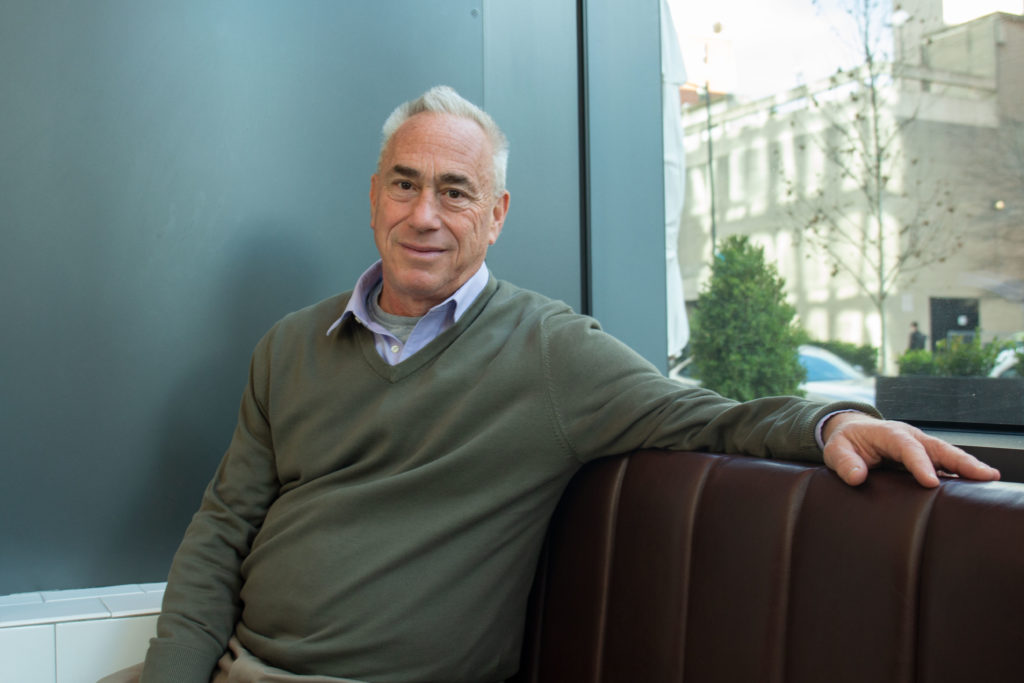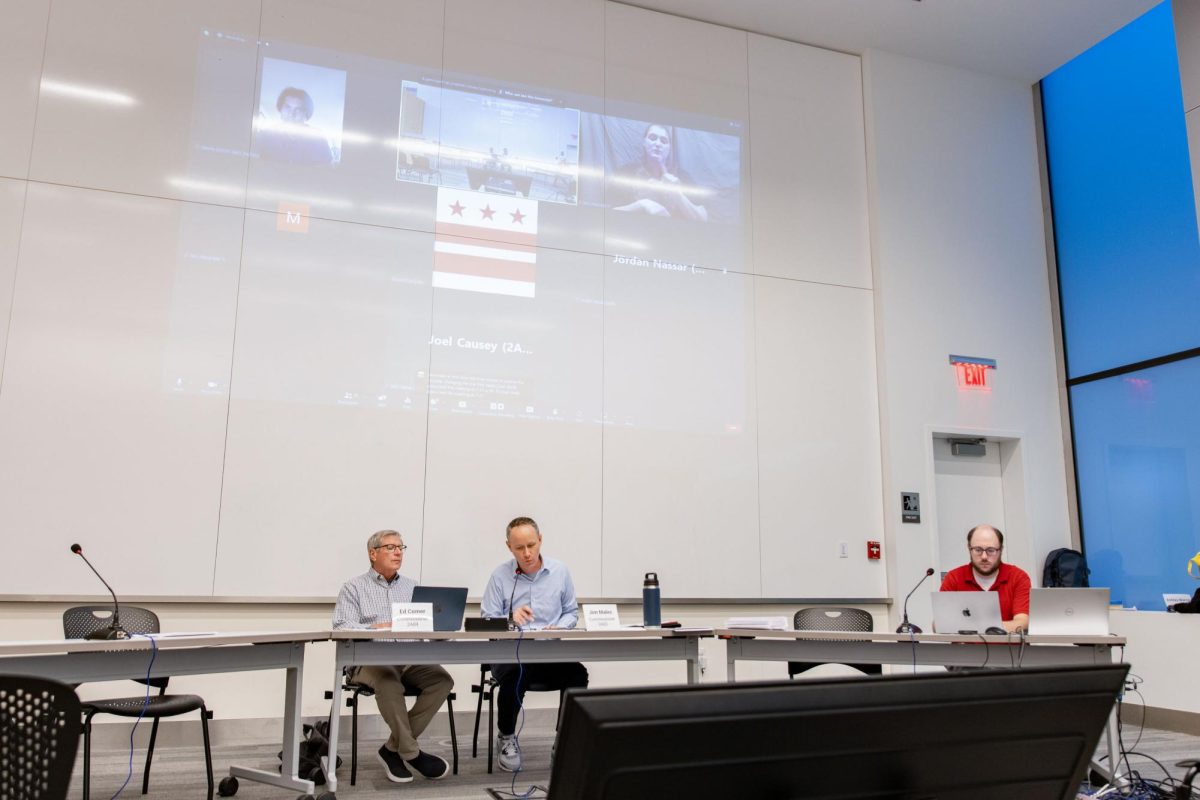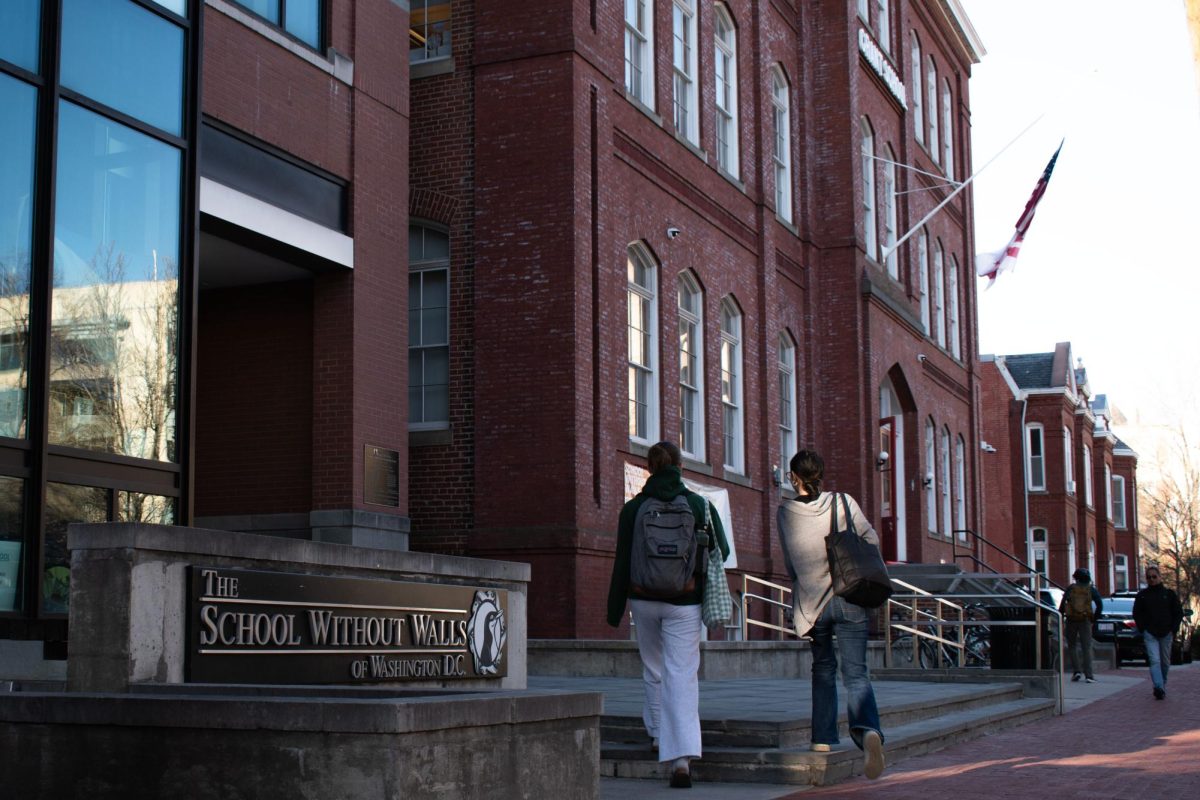Updated: Jan. 23, 2023 at 1:33 p.m.
While jumping from private practice to hyper-local issues throughout his career, GW Law alumnus Matthew Frumin has had his eyes set on joining the D.C. Council for a decade.
Frumin, a 63-year-old alumnus who graduated from GW Law in 1988, won the Ward 3 seat on the D.C. Council in November with more than three-quarters of the vote. Frumin said he hopes to tackle Ward 3’s racially and socioeconomically segregative history, support environmentally friendly transportation policies and bolster citywide education during his first term serving the ward.
Frumin will succeed another GW community member with ties to GW Law – law professor Mary Cheh, who served on the Council for 16 years.
He said he applied to the school a few years after graduating from college and considering studying economics at the University of Maryland instead. He said he “thrived” at law school, piquing his interest in international politics, including legal matters over airspace.
“I was literally keeping my options open in the first two weeks of law school,” Frumin said. “I found it super interesting, like right out of the box. It’s problem solving.”
Frumin said he entered the “big firm world” after graduating from GW Law, observing elections in Nicaragua, Morocco, Iraq and Mongolia with the International Human Rights Law Group. When he picked up a seat on his local Advisory Neighborhood Commission, 3E – which spans Tenleytown, Friendship Heights and American University Park – in 2008, his career “turned on a dime,” and he moved toward local politics.
Frumin said he launched a bid for an At-Large seat on the D.C. Council in 2013 after serving on his ANC for more than six years, despite being a partner of law firm Cassidy & Kent at the time. During his term as a commissioner, he said he juggled constituent resistance over the ideal location of American University’s law school and negotiated with AU officials to draft an AU Campus Plan in 2012, which outlined preparations for new university facilities in his area.
Frumin said he’s “very proud” of his work advocating for light installation at his local baseball field, Chevy Chase Recreation Center, so kids could have the “thrilling” big league experience while protecting the informal dog park on the field from being displaced during the modernization.
“Both of those are illustrations of how I tried to operate, which is really to listen and then try to build consensus,” Frumin said.
Frumin lost the 2014 D.C. Council At-Large race to then-incumbent Anita Bonds, who now holds the position and won 20 percent more of the vote share than Frumin’s 11 percent tally.
He said despite the loss, the campaign was a “fabulous” experience that fostered his appreciation for the District and buttressed his interest in running for a seat on the Council.
But Frumin said his future run for the Council had to come at the right time – without a contested bit from Cheh.
“She’s terrific,” Frumin said. “I couldn’t make the argument to myself that I would be better than she is.”
But when Cheh dropped her reelection bid last February, Frumin said he immediately knew he would run for her seat. After assuming the position in January and looking ahead to the rest of his four-year term, Frumin said he will push for funding capable of improving primary and secondary schools across the city and work to increase housing density and affordability to “strengthen” communities in business districts.
Frumin said he hopes to enrich the lives of seniors through elderly focused programs and home health care options.
He said he also plans to incentivize affordable housing in Ward 3 to address it’s “exclusive” and “segregated” history.
After the 1970s, D.C. officials adjusted zoning laws to conserve single-family homes in Ward 3 and push low-income housing to other parts of the District, which has had lasting effects on the demographics of the neighborhood. More than 80 percent of the area’s residents are white, despite making up just 40 percent of D.C.’s total population, and about two percent of the population lives in poverty compared to 10 percent of the District’s total residents.
Frumin said housing for both low-income and blue-collar residents in his ward is key to tackling the existing division between the area’s historically wealthy residents and newcomers. He pledged to create incentives for those communities to live in the area, including affordable housing and “cutting edge” ideas.
“I thought, ‘What do we need to do to make Ward 3 more attractive to those people who might be able to afford to live here but choose not to because we haven’t crossed the threshold of enough people who look like to make them feel comfortable?’” Frumin said.
Upon joining the Council, Frumin has voted in support of contentious bills in the past month, like overriding Mayor Muriel Bowser’s veto of the criminal code, which reduces sentences for nonviolent offenses and allows prosecutors to propose harsher rulings for serious offenses, including those involving firearms.
Frumin said Bowser vetoed the legislation in early January to show her “tough on crime” stance, and he called the Council’s move to revise the code “sensible” because the code has gone untouched for more than 100 years.
The Council voted 12-1 to override the veto last week, with Ward 8 Council member Trayon White Sr. being the sole opposing vote. Frumin said it didn’t make sense for Bowser to veto the legislation because of the 16 years of “enormous” work updating the legislation, which will become effective in October 2025, permitting more revision time on unpopular policies.
Metropolitan Police Department records show both violent and property crimes went down in the District in 2022 compared to the year prior. While officials recorded 203 homicides last year – a 10 percent drop from 2021 – the statistic is twice the number recorded 10 years prior.
“The Council’s changes didn’t cause the crime that we’re having, and the politics of crime are terrible,” Frumin said. “That’s what this was, the politics.”
Frumin also voiced his support for a bill that would offer rebates for electric bicycles proposed last week by Brooke Pinto, the Ward 2 Council member who represents the area encompassing Foggy Bottom.
He said he and his wife share an e-bike, which he rides everywhere because it doesn’t congest traffic or require gasoline. He added that others should make the switch to nonvehicular transportation if they can afford to do so to open up streets for those who cannot.
“Let’s leave the parking spaces for them, let’s leave this space on the road,” Frumin said. “It’s the future. And it’s the policy of the Democratic Party.”
Max Porter and Vaughan Goff contributed reporting.
The Hatchet updated this post to correct the following:
The Hatchet incorrectly reported that Frumin voted in favor of D.C.’s revised criminal code. Frumin did not vote in favor of the revised criminal code, but he did vote in favor of the council’s override of D.C. Mayor Muriel Bowser’s veto of the bill. We regret this error.







